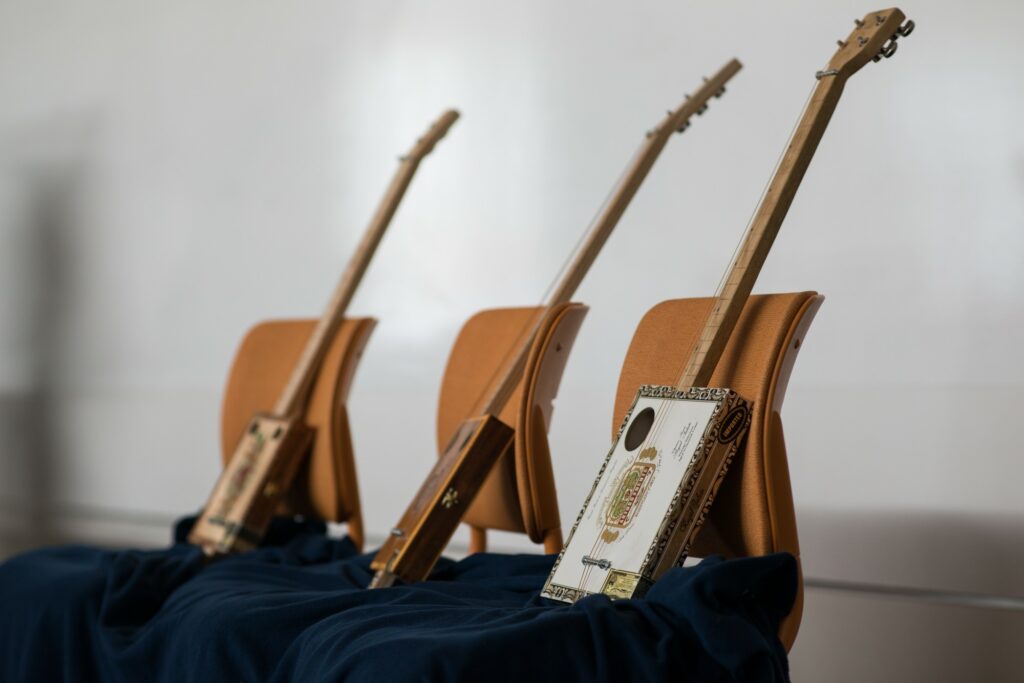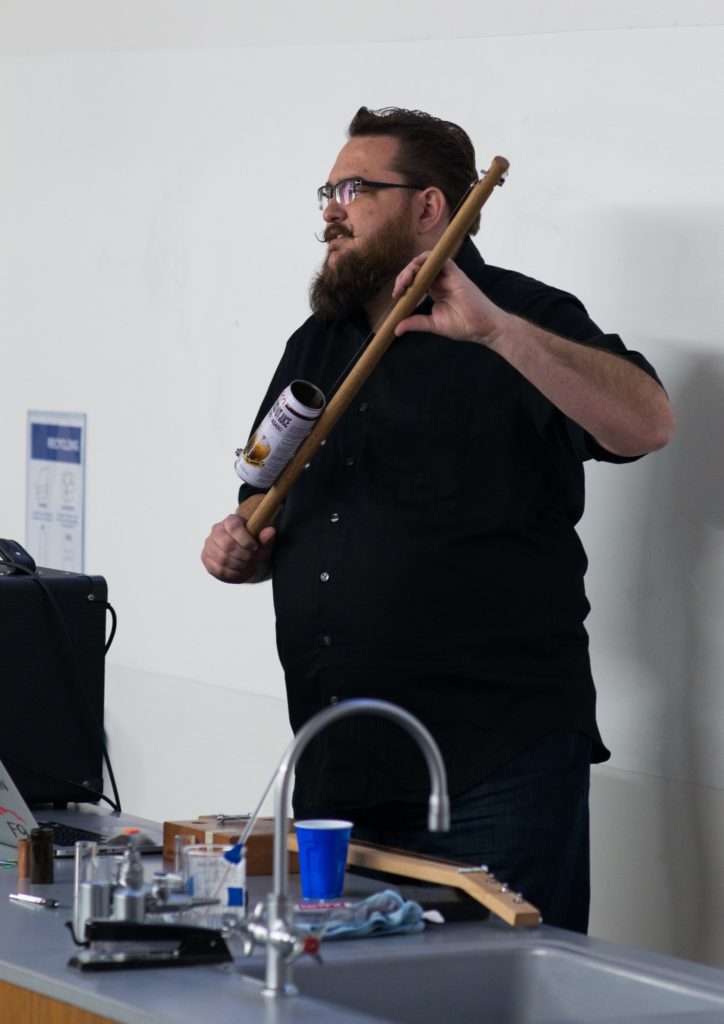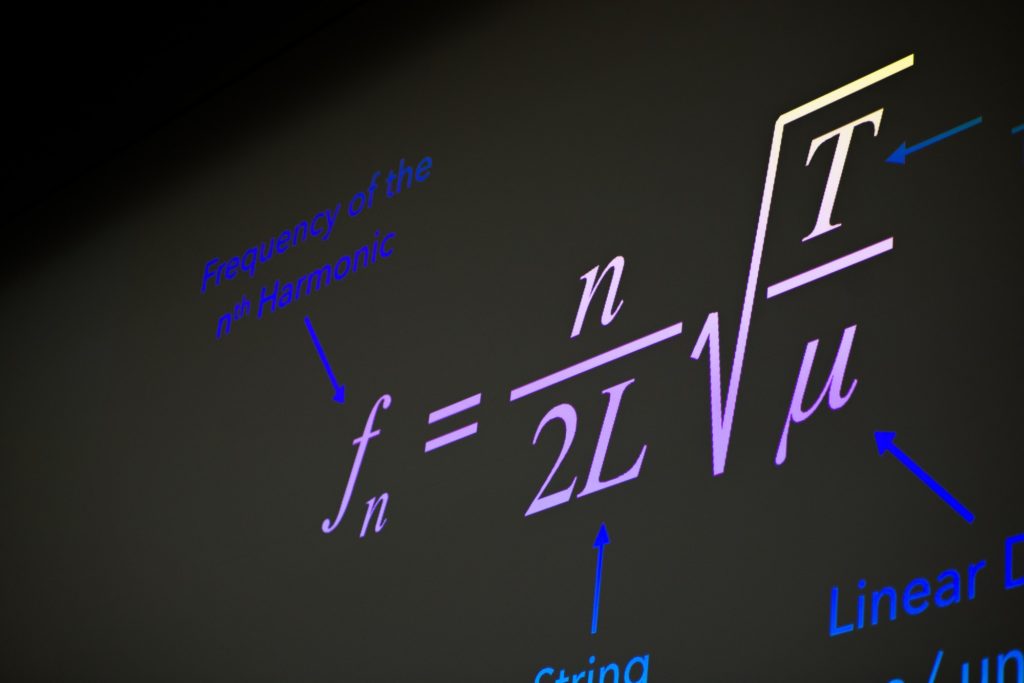An empty cigar box, some guitar string, a piece of oak and some hardware is all Ron Proctor needs to make a guitar that is as much art as instrument.
Proctor, a Weber State University alumnus and production manager at Clark Planetarium, conducted a seminar for a group of physics students and faculty members about the history and science of cigar box guitars on Feb. 21 in Tracy Hall Science Center.

Cigar box guitars were born out of necessity and ingenuity. Traced as far back as 1840 in the impoverished Mississippi Delta, the improvised instruments were an important vessel for African cultural expression in the South.
“You can’t buy things, so you make things,” Proctor said. “This is where some cigar box instruments were first made.”
The first cigar box guitars were made with a broomstick, the wire that holds a broom together and spare hardware found around the house.
The music produced by early cigar box guitar players went on to inform the Delta blues, rock ’n’ roll and even heavy metal, Proctor said.
Proctor breathes new life into this old tradition by applying the physics concepts he learned at Weber State University to create his original cigar box guitars.

“The guitars work by putting energy into a string, and that energy vibrates a string because it’s under tension,” Proctor said. “The vibration is transferred into the face through the bridge.”
Proctor explained the variables that impact the pitch of a guitar string, including the density, length and tension of the string. “Lower density, higher frequency,” Proctor said.
Although Proctor explained how a guitar produces noise with physics, his guitars continue a custom of improvised design by using bolts for the bridges.
The physics department brings alumni in every year to discuss their passions and interests in the world of science, technology, engineering and math.
“We try to find a diverse group of people, so people see what they learned,” John Armstrong, Weber State University physics professor, said. “The thing I like about Ron’s presentation is that he’s showing us he is using physics in his hobbies.”
Not only did professors find takeaways from Proctor’s demonstration, but students gained a new perspective on physics as well.
“I was surprised because I thought he was going to talk about the planetarium, but it was cool he totally went another route with it and talked about taking his applied skills that he learned in physics and actually applying them,” Amanda Williams, a Weber State University physics student, said. “I came away with more confidence that I can apply the skills I’m learning getting a physics degree to do something cool.”

Proctor said a physics education helps him design cigar box guitars by giving him an intuitive understanding of how to solve problems.
Beyond his current guitar design, Proctor hopes to apply his physics knowledge further by adding frets to his guitars and expanding his instrument collection to include a cigar box violin.
Proctor explained that his appreciation for the instrument is enhanced by his physics knowledge. “It’s fun to say I know why that sound is getting made, and it’s exciting because I learned about that in school.”














